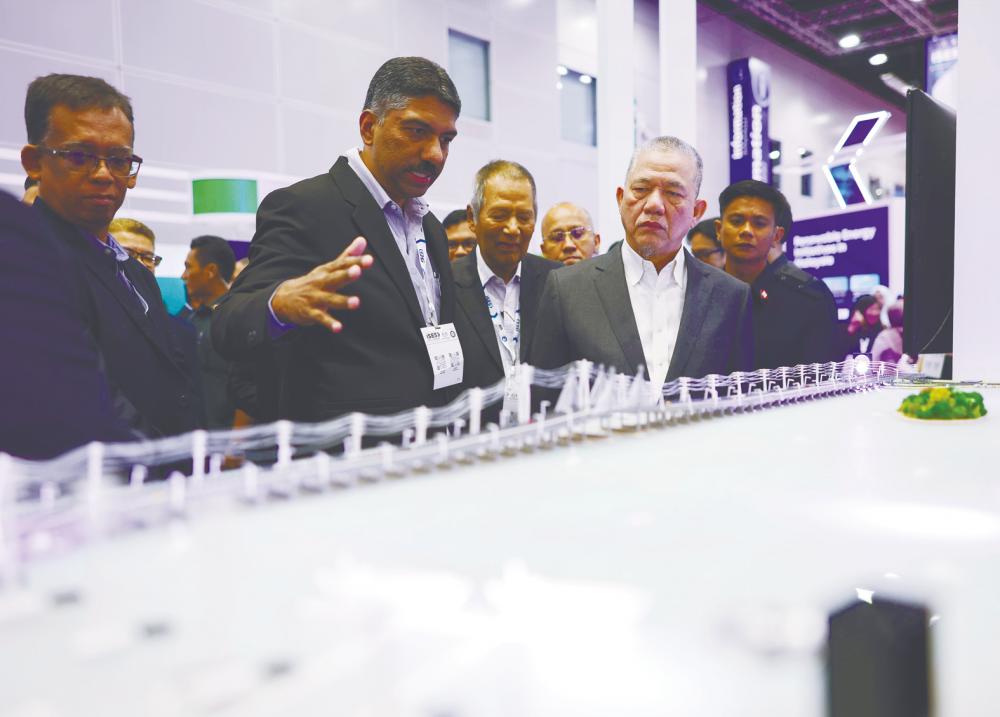KUALA LUMPUR: To reinforce its commitment to future-proof the electricity supply sector, the government has strengthened its dedication to energy transition and advance Malaysia’s energy sector’s competitiveness and visibility at regional and global levels.
Deputy Prime Minister and Energy Transition and Water Transformation Minister Datuk Seri Fadillah Yusof said the government will also gradually move away from a single-buyer model in renewable energy (RE) development to reduce risks to the national electricity supply system.
This approach will encourage broader participation and competition within the power supply industry and among RE stakeholders, he said.
Fadillah said the government will expedite and enhance the implementation of an open grid mechanism and facilitate increased access to green electricity for businesses through third-party or corporate power purchase agreements.
“As a result, a competitive renewable energy market will emerge, driving down costs, boosting investor confidence, and speeding up the adoption of clean energy technologies,” he said at the Sixth International Sustainable Energy Summit 2024 (ISES 2024) here today.
Fadillah said the government will encourage the growth of non-solar RE sources such as biogas, biomass and mini-hydro to diversify power generation and ensure energy security.
“A feed-in tariff quota of 190MW for these sources will be allocated via e-bidding. Additionally, the Sustainable Energy Development Authority will conduct a bioenergy cluster study to identify potential areas for bioenergy development, supporting green electricity sourcing under the new Corporate Renewable Energy Supply Scheme.”
Thirdly, Fadillah said, the government will accelerate the implementation of grid-level battery energy storage systems (Bess), including exploring the potential establishment of an electricity ancillary market mechanism. Deploying grid-level Bess will enable efficient management of intermittent renewable energy sources such as solar.
“Additionally, exploring the implementation of an electricity ancillary market mechanism will offer economic incentives for energy storage and other grid-supportive technologies. This will facilitate the integration of renewable energy sources and ensure a more resilient and flexible energy infrastructure,” Fadillah said.
Further, he said, the government will enhance the current accreditation process by focusing on renewable energy within the technical and vocational education and training programme to establish a robust skill development and certification framework.
“By collaborating with the government, educational institutions, and private companies to align training with industry needs, our goal is to equip individuals with specialised knowledge and practical skills to drive innovation and sustainability in the energy transition. Ultimately, we aim to cultivate a skilled, capable, and competent workforce to meet the industry’s evolving demands,”
Fadillah said the government aims to nurture a talent pool that is well-versed in the intricacies of the green industry, inspiring sustainable growth and contributing significantly to Malaysia’s energy transition objectives.
He noted that Malaysia is committed to a clear and ambitious vision of a low-carbon future, aligning itself with its global pledge to achieve net-zero carbon emissions by 2050. This commitment is backed by a detailed framework of policies, regulations, and initiatives outlined in the National Energy Transition Roadmap (NETR).
“Currently, our energy sector is responsible for nearly 80% of our annual greenhouse gas emissions of approximately 259 million tonnes. Therefore, the energy transition to cleaner energy is not a choice but a clarion call for action,” Fadillah said.









